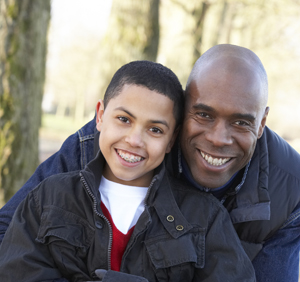
March is Talk with Your Teen about Sex Month. Why talk about sex with our kids?
In her recent talk at Wellesley College, Cecile Richards, President of Planned Parenthood Federation of America, reminded us that parents are the most important source of sex education for their children. National studies agree. When parents talk about sex with their kids, it can help them postpone having sex and make it more likely teens will use protection when they do have sex. Our research at Wellesley Centers for Women found that this is particularly important in delaying sex for boys.
Here are some take-home messages from our own and others’ research on how parents and teens talk about sex and relationships. The quotes are from our interviews with parents of middle school students.
“I’m willing to go there with her (talk about sex), because I know that I had trouble speaking with my mom about it when I was younger. So I know I need to be there and play that role. And if I don’t talk to her about it, she’ll find out on her own, and that’s not the way that I want that to happen.”
Why is it so hard for us to talk to our kids about sex?
“It’s hard for me to say, ‘Well this is how your penis works.’ You know? Okay, I’ll try to figure it out and I don’t want to sound stupid in front of the kid.”
- Parents often feel embarrassed and may not know how to start conversations about sex
- Parents don’t know where to get accurate information to share with their kids
- Kids are embarrassed too, but it’s important for them to hear from you
- Once you start (even with a small conversation), it will get easier
How do we do it? Tips on talking with teens about sex
“You’re basically informing them and, you know, letting them know that you’re there. And then you kind of just have to take it as it comes, because you never know what’s going to happen.”
- Figure out what’s important to you and share it with your kids
- Listen to what your kids have to say (or what they may have trouble saying)
- Keep the door open – sometimes the first conversation is just an icebreaker
- Give your kids medically accurate information about sex
- Talk with your kids before they have sex
Who can help?
“He still talks about things that he learned in (sex education) class. He still makes a reference to it when we’re talking about things. One of the funny things that doesn’t happen anymore is any reference to sex, we don’t shy away from it if it does come up. He’s just more accepting that it’s a part of life at this point.”
- Just because you didn’t talk about sex growing up with your own family, doesn’t mean you can’t talk with your own kids about sex
- Even when you’re embarrassed, you can still have good conversations with your teens about sex
- You are not alone
- o Think about friends and family you trust who can be part of the conversation (e.g., aunts, uncles, older siblings, godparents)
o Find out if your teen has a sex education class at school and ask your teen about it
o Here are some resources for information and support to talk to your teens about sex:
10 tips for parents (The National Campaign to Prevent Teen and Unplanned Pregnancy)
Help your teen make healthy choices about sex (Centers for Disease Control and Prevention)
Jennifer Grossman, Ph.D. is a research scientist at the Wellesley Centers for Women. She co-directs an evaluation of a middle school sex education curriculum and leads a project investigating what works and what gets in the way of family communication about sexuality among diverse families.


